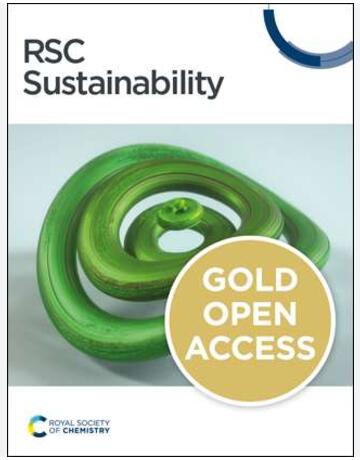纳米银颗粒和蛭石堆肥对长尾藻(De Man,1876 年)在 Miscanthus × Giganteus 中的控制及其生长发育的影响
IF 3.3
3区 环境科学与生态学
Q2 ENVIRONMENTAL SCIENCES
引用次数: 0
摘要
Miscanthus × giganteus 生物质在生产可再生能源和生物基产品方面发挥着至关重要的作用,有助于实现全球可持续发展目标。然而,将其引入欧盟后,它很容易受到外寄生针线虫 Longidorus spp.的感染,而这种线虫是已知的严重病毒性疾病的传播媒介。本研究的目的是评估以下土壤改良剂的效果:在人工接种长脚金线虫后,将埃森藻堆肥和纳米银微粒(Ag-NPs)施用到种植有 Miscanthus 植物的土壤中。在 Skierniewice 的国家园艺研究所进行了一项为期两年的实验,在混凝土环中填充了添加了 10% 泥炭的中沙土。处理包括:对照组(无添加物)、蛭肥(4 升 E. fetida 蛭肥)和 Ag-NPs (60 毫克/升土壤)。每种处理重复四次。施用蛭肥和 Ag-NPs 对土壤参数和作物产量都有积极影响,同时还能抑制线虫数量。与对照组(15%)相比,蛭石堆肥使线虫数量减少了 80%,Ag-NPs 使线虫数量减少了 90%。本文章由计算机程序翻译,如有差异,请以英文原文为准。
Effect of Silver Nanoparticles and Vermicompost on the Control of Longidorus elongatus (De Man, 1876) in Miscanthus × Giganteus and Its Growth and Development
Miscanthus × giganteus biomass plays a crucial role in producing renewable energy and bio-based products, supporting global sustainability objectives. However, its introduction into the European Union has made it susceptible to the ectoparasitic needle nematode Longidorus spp., which are known vectors of severe viral diseases. The aim of the presented research was to assess the effectiveness of the following soil amendments: vermicompost from Eisenia fetida and silver nanoparticles (Ag-NPs) applied to the soil with Miscanthus plants following artificial inoculation of Longidorus elongatus. A two-year experiment was conducted at the National Institute of Horticulture Research in Skierniewice using concrete rings filled with medium sandy soil amended with 10% peat. Treatments included: control (no amendments), vermicompost (4 L of E. fetida vermicompost), and Ag-NPs (60 mg/L soil). Each treatment was replicated four times. Application of both vermicompost and Ag-NPs positively influenced soil parameters and crop yield while suppressing nematode populations. Significant reductions in L. elongatus density were observed: vermicompost reduced nematode population by 80% and Ag-NPs by 90% compared to the control (15%).
求助全文
通过发布文献求助,成功后即可免费获取论文全文。
去求助
来源期刊

Sustainability
ENVIRONMENTAL SCIENCES-ENVIRONMENTAL SCIENCES
CiteScore
6.80
自引率
20.50%
发文量
14120
审稿时长
17.72 days
期刊介绍:
Sustainability (ISSN 2071-1050) is an international and cross-disciplinary scholarly, open access journal of environmental, cultural, economic and social sustainability of human beings, which provides an advanced forum for studies related to sustainability and sustainable development. It publishes reviews, regular research papers, communications and short notes, and there is no restriction on the length of the papers. Our aim is to encourage scientists to publish their experimental and theoretical research relating to natural sciences, social sciences and humanities in as much detail as possible in order to promote scientific predictions and impact assessments of global change and development. Full experimental and methodical details must be provided so that the results can be reproduced.
 求助内容:
求助内容: 应助结果提醒方式:
应助结果提醒方式:


